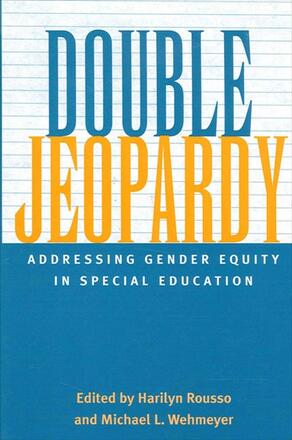
Double Jeopardy
Addressing Gender Equity in Special Education
Alternative formats available from:
Enables teachers and other school personnel working with students with disabilities to provide a gender equitable educational experience.
Description
2002 CHOICE Outstanding Academic Title
Highlighting the educational issues of girls and young women with disabilities, Double Jeopardy examines how they are exposed to discrimination based on gender and disability/special education status, and how they experience less successful vocational outcomes than their disabled male or nondisabled female peers upon leaving school. It studies both gender equity issues and inequitable practices that affect a wide range of students, such as Title IX, biased curricula, inequitable student-teacher interactions, and other issues such as eligibility for special education services. The book also describes innovative programs and strategies designed to empower disabled youth, who are ten percent of all students.
Contributors include Adrienne Asch, Michael Benz, Bonnie Doren, Estelle Eskenazi, Nancy Ferreyra, Michelle Fine, Craig Flood, Merle Froschl, Dolores A. Grayson, Katherine Hanson, Taran Jefferies, Eric Jolly, Melissa Keyes, Eleanor Linn, Theresa Mickey McCormick, Harilyn Rousso, Ellen Rubin, Michelle Schwartz, Susan Shaffer, Linda Shevitz, Susan J. Smith, Ellen Wahl, Michael L. Wehmeyer, and Maryann Wickett.
Harilyn Rousso is Executive Director of Disabilities Unlimited Consulting Services. She is the author of Disabled, Female, and Proud!: Stories of Ten Women with Disabilities, with Susan Gushee O'Malley and Mary Severance. Michael L. Wehmeyer is Research Associate Professor and Director, Beach Center on Families and Disability, University of Kansas. He is the coauthor, with Martin Agran and Carolyn Hughes, of Teaching Self-Determination to Students with Disabilities: Basic Skills for Successful Transition.
Reviews
"This book is unique in that it focuses on gender equity and disability equity with additional important attention to race, age, and economic issues that contribute to multiple types of inequitable educational treatments and outcomes. " — Susan Shurberg Klein, editor of Sex Equity and Sexuality in Education